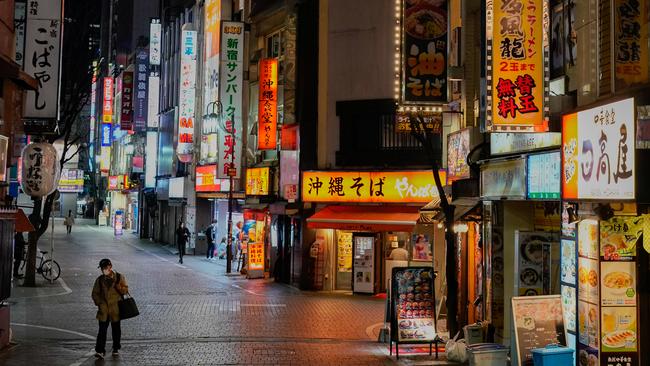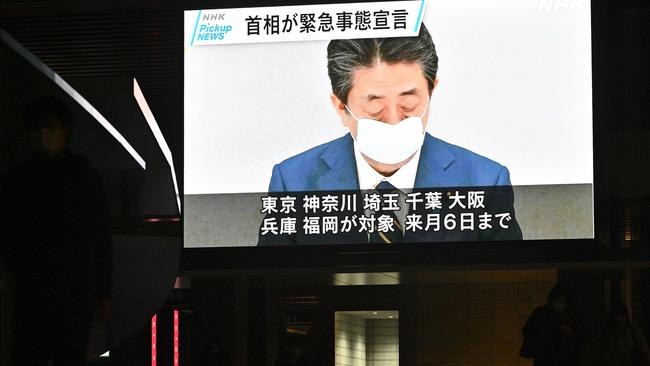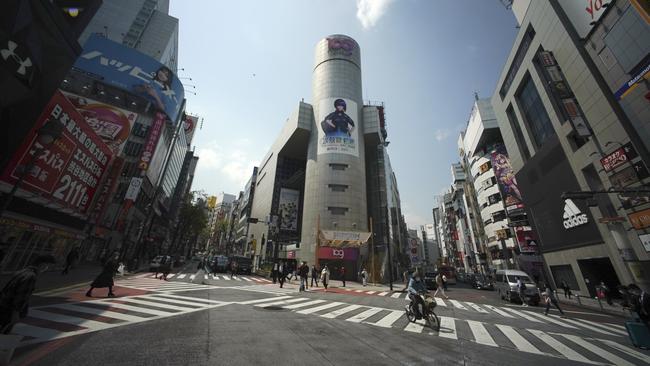Coronavirus: Japan’s PM Shinzo Abe asked to lead world response
After weeks of criticism about his handling of COVID-19, Shinzo Abe publicly enlisted co-ordinate the international response.

Japan’s Churchill admiring Prime Minister Shinzo Abe has been asked to lead the world out of the coronavirus pandemic which - after weeks of nonchalance - he has called “the biggest crisis since World War II”.
A fortnight after conceding the Tokyo Olympics would not be held in July, on Tuesday evening Abe unveiled a $580 billion COVID-19 support package, telling the east Asian nation the “situation is getting desperate” while insisting much of the world’s third biggest economy would stay open.
By Wednesday morning, former United Kingdom Prime Minister Gordon Brown and former Australian Prime Minister Kevin Rudd were publicly enlisting Abe to coordinate the international response to the coronavirus.
East Asian leaders feted
“Our hope is that Japan can play the lead role in now making this possible,” the two former prime ministers wrote in an opinion piece published in Japan’s influential Nikkei Asian Review.
As the crisis has fractured Europe and further escalated the “America first” rhetoric of the Trump administration, East Asian leaders are being looked to for global leadership. Days before the entreaty to Abe, the director general of the World Health Organisation Tedros Adhanom Ghebreyesus asked South Korea’s president Moon Jae-in to deliver a keynote speech - over video link - at the World Health Assembly in May on the country’s successful management of the coronavirus.
Richard McGregor, an East Asian expert at the Lowy Institute, said Japan was a good candidate to coordinate the global effort.

“It is a rich country with decades of experience in multilateral development organisations,” McGregor told The Australian.
“But Rudd and Brown would have other reasons in mind. Under Trump, the US can’t or won’t play a leadership role. And if they had nominated China, many other G20 members would have objected, including the US, Japan and Australia,” he said.
Overnight, Japan left Sweden - whose Prime Minister Stefan Löfven spoke with Abe in recent days - as the last developed world country without firm restrictions to reduce the spread of the coronavirus.
Early on Wednesday morning seven of Japan’s 47 prefectures - across Tokyo, Osaka and Kyushu island - were put into a state of emergency, hours after Prime Minister Abe implored the country’s more than 125 million people to avoid crowded areas, wear facemasks and practice social distancing.

“Everything is dependent on our behavior. I ask for your cooperation,” Abe said.
Japan currently has just over 4,200 confirmed cases of COVID-19, but testing levels remain far below countries such as South Korea and Australia.
Abe said on Tuesday night the country’s health care system was becoming increasingly strained and asked Japanese to cut back their interactions with others by between 70 and 80 per cent in “order for us to escape this emergency”.
But the Prime Minister - a repeat reader of “Never Despair”, the eight volume of Martin Gilbert’s authoritative biography of Winston Churchill - has stressed the month-long restrictions will not be as strict as those around the world.
“Even with the state of emergency declaration, the expert opinion is we do not need to lock down our cities like they have done abroad,” Abe said.
Much of the population - who have all been wearing facemasks for months - have been told to keep working, while bars and gyms have closed, along with much retail.
Some businesses have decided to close even if they are exempt from the new rules.
“I went to a takeaway coffee shop place today and they said they are closing tomorrow because they feel they should,” said Melanie Brock, a business advisor based in Tokyo.
She added that while formal restrictions in Japan have only just come into place, people had been taking precautions for months as “angst” about the crisis grew.
The government’s support package - worth about 7 percent of annual economic output - includes direct cash payments of ¥300,000 ($4,490) to households that have lost income in the crisis.
“One month is the most we can ask the public to bear this for,” a senior Abe official told Nikkei.








To join the conversation, please log in. Don't have an account? Register
Join the conversation, you are commenting as Logout